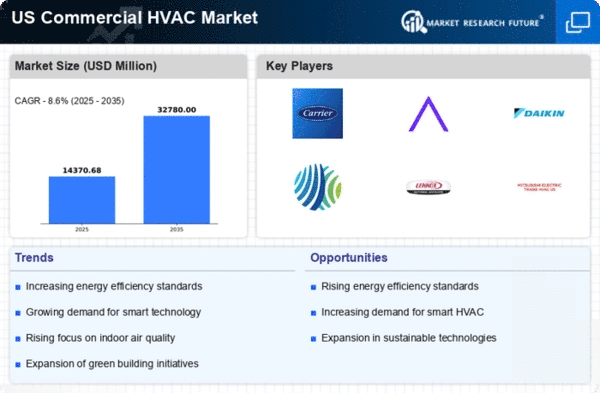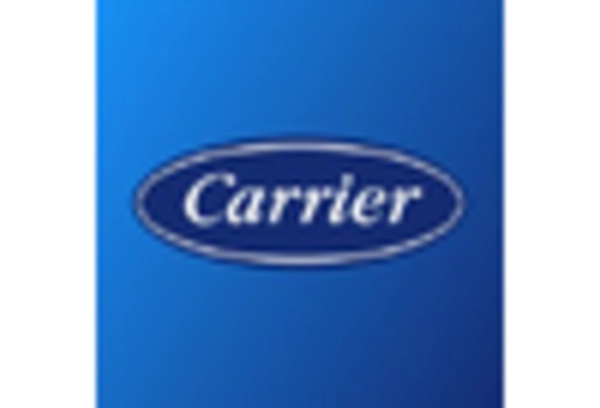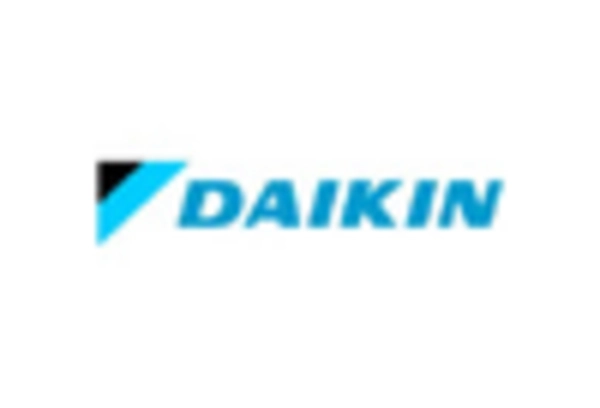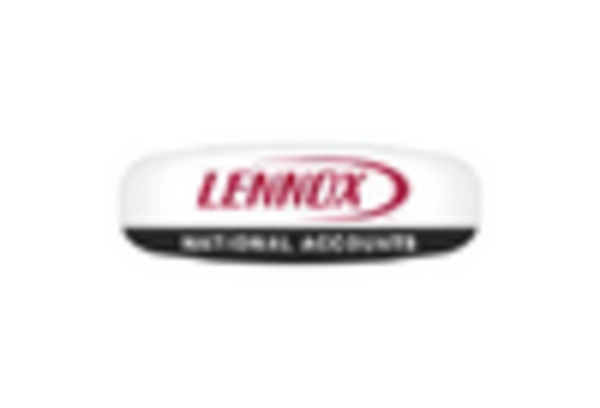Rising Operational Costs
In the current economic landscape, rising operational costs are a significant driver for the commercial hvac market. Businesses are increasingly burdened by escalating energy prices, which can account for a substantial portion of their operational expenses. As a result, there is a growing demand for energy-efficient HVAC solutions that can mitigate these costs. The commercial hvac market is responding to this need by offering systems that promise lower energy consumption and reduced utility bills. It is estimated that energy-efficient HVAC systems can reduce energy costs by up to 30%, making them an attractive investment for businesses looking to optimize their budgets. This trend is likely to continue, as companies seek to balance performance with cost-effectiveness.
Regulatory Compliance Pressure
The commercial HVAC market is increasingly influenced by stringent regulatory frameworks aimed at enhancing energy efficiency and reducing greenhouse gas emissions. In the US, regulations such as the Energy Policy Act and various state-level mandates compel businesses to adopt more efficient HVAC systems. This compliance pressure drives investments in advanced technologies, as companies seek to avoid penalties and enhance their operational efficiency. The market is projected to grow as organizations prioritize compliance, with estimates suggesting a potential increase in market size by 15% over the next five years. As regulations evolve, the commercial hvac market will likely see a shift towards systems that not only meet but exceed these requirements, fostering innovation and competition.
Shift Towards Renewable Energy Sources
The transition towards renewable energy sources is significantly impacting the commercial hvac market. As businesses seek to reduce their carbon footprint and align with sustainability goals, there is a growing interest in HVAC systems that utilize renewable energy, such as solar or geothermal technologies. This shift not only supports environmental objectives but also offers long-term cost savings through reduced reliance on fossil fuels. The commercial HVAC market is witnessing an increase in the adoption of hybrid systems that combine traditional and renewable energy sources. Projections indicate that the market for renewable energy HVAC solutions could grow by 12% annually, reflecting a broader trend towards sustainable practices in the commercial sector.
Increased Demand for Indoor Air Quality
The growing awareness of indoor air quality (IAQ) is becoming a pivotal driver in the commercial hvac market. Businesses are increasingly prioritizing the health and comfort of their employees and customers, leading to a surge in demand for HVAC systems that can effectively filter and purify air. Enhanced IAQ is linked to improved productivity and reduced absenteeism, making it a critical consideration for organizations. The market is responding to this trend by developing advanced filtration systems and air purification technologies. It is estimated that investments in IAQ improvements can yield a return on investment of up to 20% through enhanced employee performance. This focus on IAQ is likely to continue shaping the commercial hvac market in the coming years.
Technological Advancements in HVAC Systems
Technological advancements are reshaping the commercial hvac market, driving innovation and enhancing system performance. The integration of IoT and AI technologies into HVAC systems allows for real-time monitoring and predictive maintenance, which can significantly improve efficiency and reduce downtime. These advancements not only enhance user experience but also contribute to energy savings, with some estimates indicating potential reductions in energy use by 20-25%. As businesses increasingly recognize the value of smart HVAC solutions, the market is expected to expand, with a projected growth rate of 10% annually over the next few years. This technological evolution is likely to redefine operational standards within the commercial hvac market.
















